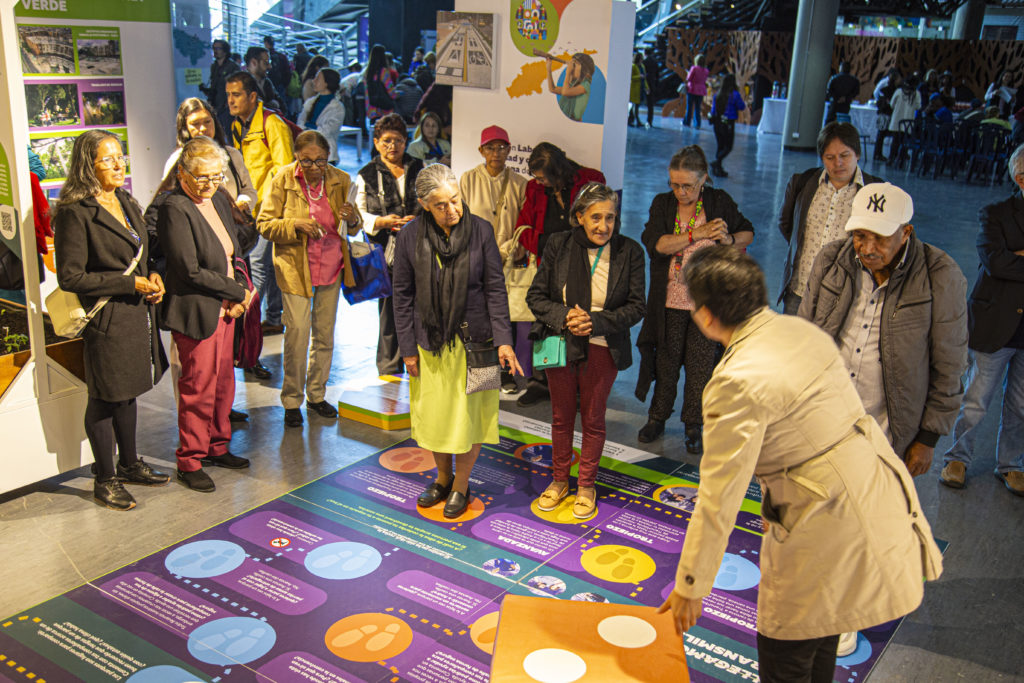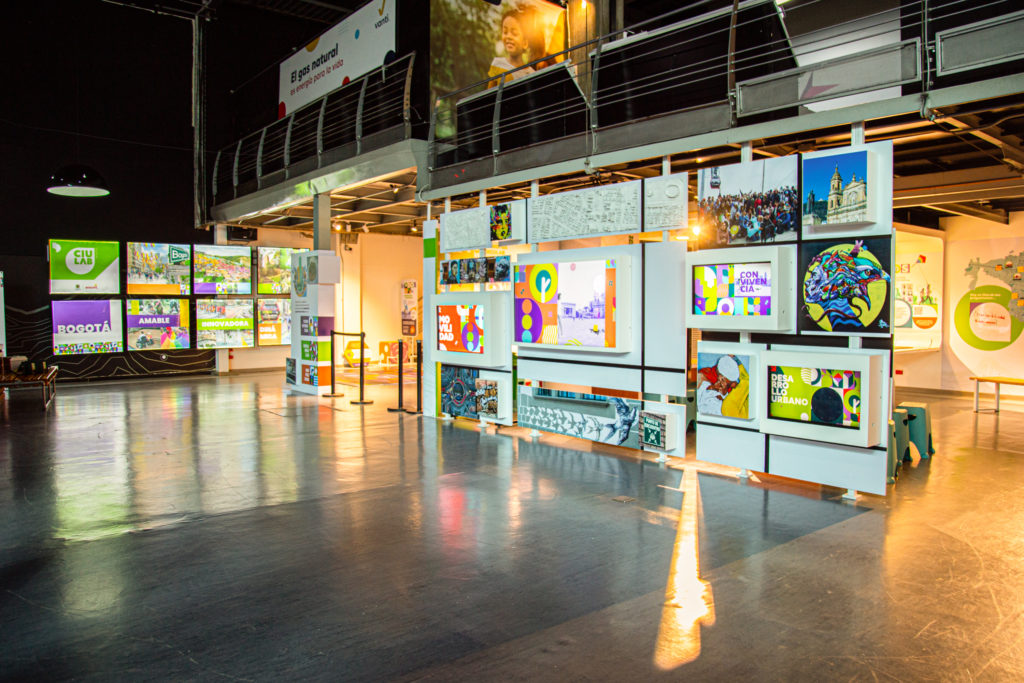Maloka – Science Center, Colombia

CiuLab Bogotá arises from an alliance between the Urban Development Institute – IDU and Maloka; Science Center, in Bogotá Colombia, to redefine citizen participation, with the aim of collectively thinking and producing knowledge about more sustainable and solidarity ways of inhabiting the city, using the Museum and its visitors as a basis to mobilize this dialogue. Its development was based on the New Urban Agenda (UN-Habitat) as a contribution to achieving the Sustainable Development Goals addressing topics such as circular economy, sustainable mobility, coexistence in public spaces, and social inclusion, as key issues to address the challenges of urban development and civic culture.
It was developed from a proposal of participatory design and citizen science, starting with a digital call through a survey completed by 442 people who contributed knowledge about the city through their responses, as a first input for the design. From there, 39 young and adult volunteers were selected to form two working groups, to which two groups of girls and boys and a group of older adults were added through the Social Integration Secretariat, for a total of 106 participants of different ages, backgrounds and interests in the co-creation stage.
The co-creation took place in three moments: situating, for the recognition of the participants and to reflect on the sense of creating a city laboratory; ideating, to identify challenges, propose transformations and generate educational proposals to improve the experience of inhabiting the city, and finally prototyping, where participants, museum staff and urban development experts tested the educational devices proposed in the previous stages. Finally, the production of modules, games, graphic and audiovisual products was carried out, as well as the design of mediation strategies that shape the proposal.
CiuLab is a 130 m² museographic space designed for learning, experimenting, and producing knowledge about the city. The experience revolves around 3 thematic axes: coexistence in public spaces, urban development (including urban landscapes and circular economy), and sustainable mobility. It includes nine interactive and informative modules, workshop areas, and an itinerant experience to learn about specific projects, through an interactive digital module that displays information about the territory and a space for educational activities.
With this project, the museum strengthened its participatory design strategies, contributing to the construction of citizen science proposals and energizing the dialogue on sustainability with more than 30,000 people to date. The IDU transformed and revitalized participation and communication strategies with citizens. For co-creation participants and specific communities, such as museum neighbors, the laboratory has served to consolidate their own sustainability initiatives, for example, the urban garden and soon a project focused on solid waste processing with the neighborhood. All stakeholders use the laboratory as a meeting point for the construction of the city in physical and social terms.
